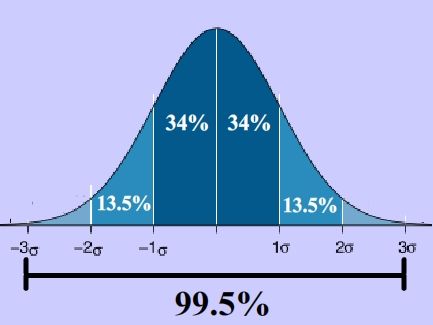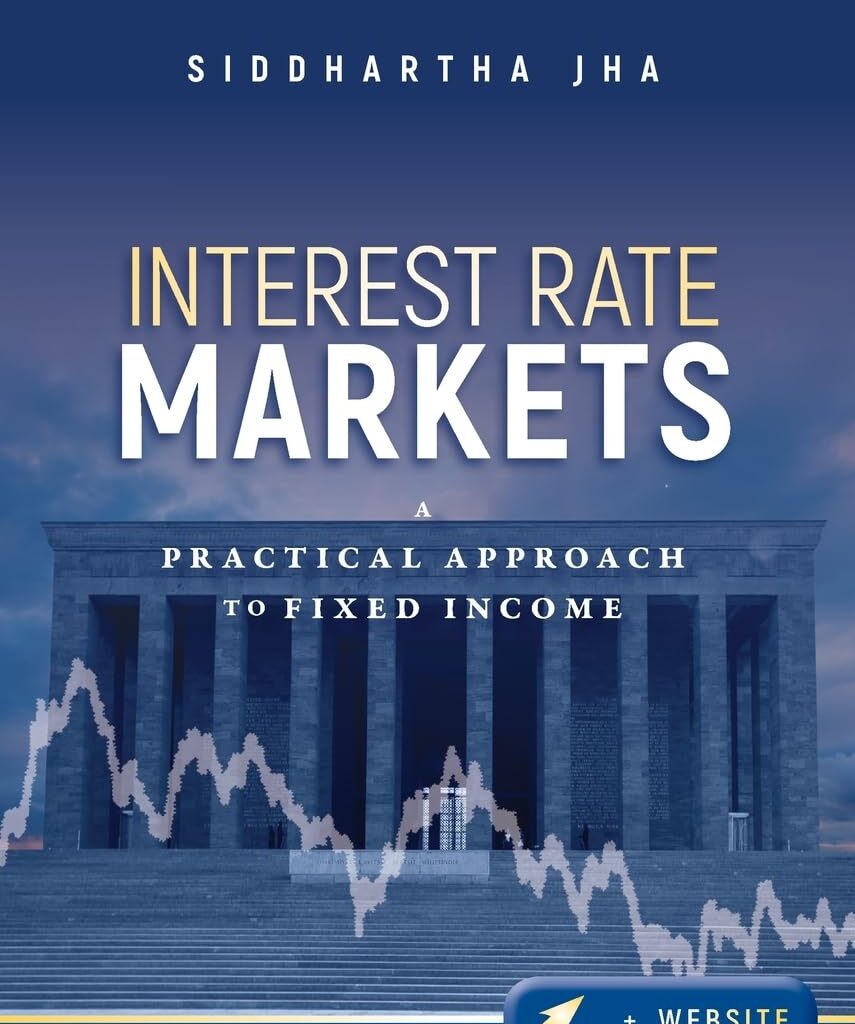Navigate the Complexities of Interest Rates
In the intricate tapestry of financial markets, interest rates emerge as pivotal threads, influencing everything from personal savings to global economic trends. These seemingly simple percentages are, in fact, powerful forces that drive the flow of money in economies worldwide. They affect our daily decisions, from choosing a mortgage or saving for retirement to the broader aspects of government policies and corporate investments. Yet, despite their significance, interest rates often remain shrouded in mystery and misunderstanding.
This article aims to demystify the concept of interest rates, shedding light on their fundamental nature and far-reaching impact. We will embark on a journey through the labyrinth of financial systems, exploring how interest rates are determined and the myriad ways they affect both macroeconomic landscapes and individual financial health. From the historical evolution of interest rates to their current dynamics in the modern world, we will unravel the complexities surrounding these crucial economic indicators.
Understanding interest rates is not just an academic exercise; it’s a practical necessity today. Whether you’re a homeowner pondering a mortgage, a student considering a loan, an investor seeking returns, or simply a curious individual trying to make sense of economic news, grasping the nuances of rates is essential. They influence inflation, employment, and growth, and understanding their workings can empower you to make more informed financial decisions.
So, let’s dive into the world of interest rates, where each percentage point tells a story of economic interplay, and each fluctuation can ripple through the corridors of global finance. By demystifying these rates, we aim to provide you with the knowledge and tools to navigate the financial aspects of your life with greater confidence and insight.
The Fundamentals of Interest Rates
Defining Interest Rates
At its core, an interest rate is the price paid for using borrowed money, a concept central to the functioning of modern economies. It represents a critical balance point in financial markets, serving as the cost for borrowers and the reward for lenders. In essence, when you borrow money, the interest rate dictates how much extra you will pay back in addition to the principal, while for savers and investors, it determines the return on their investments. This dual role makes understanding interest rates essential for anyone participating in the financial system, whether as a consumer, a business owner, or an investor.
Types of Rates
Interest rates manifest in various forms, each with distinct characteristics and implications. The most common types include:
- Fixed Rates: These rates remain constant over the life of the loan or investment, providing predictability in payments and returns. They are particularly favored in environments where future interest rate fluctuations are uncertain.
- Variable Rates: Contrary to fixed rates, variable rates fluctuate over time, typically in response to changes in benchmark interest rates like the federal funds rate. This variability introduces risk and uncertainty, as payments can increase or decrease.
- Nominal vs. Real Rates: The nominal interest rate is the rate before adjusting for inflation, while the real interest rate is the nominal rate minus inflation. The real interest rate more accurately reflects the actual cost of borrowing and the real investment yield.
- Annual Percentage Rate (APR) and Annual Percentage Yield (APY): APR includes the interest rate and additional loan costs, providing a more comprehensive cost measure for borrowers. On the other hand, APY considers compound interest, offering a more accurate picture of potential earnings for savers.
How Are Interest Rates Determined?
The determination of interest rates is a complex interplay of market forces, central bank policies, and economic indicators. Key factors influencing interest rates include:
- Central Bank Policies: Central banks, like the Federal Reserve in the United States, play a pivotal role in setting benchmark interest rates. These rates influence the overall level of interest rates in the economy, affecting everything from mortgage rates to the interest on savings accounts.
- Inflation: Generally, higher inflation leads to higher interest rates, as lenders demand more significant returns to compensate for the decreased purchasing power of future repayments.
- Economic Conditions: In robust economies, interest rates tend to be higher due to increased demand for credit. Conversely, central banks may lower rates in weaker economic conditions to stimulate borrowing and investment.
- Government Debt: The supply and demand for government bonds can also impact interest rates. Higher demand for bonds typically leads to lower yields, influencing the economy’s broader spectrum of interest rates.
- Global Market Dynamics: Global events and trends can also affect domestic interest rates in today’s interconnected world. For instance, economic policies in major economies like the European Union or China can have a ripple effect on interest rates worldwide.
Understanding these fundamentals of interest rates is crucial for making informed financial decisions. Whether it’s deciding on a mortgage, investing in bonds, or saving for the future, the implications of interest rates permeate every aspect of personal and corporate finance.
The Macro and Micro Impact of Interest Rates
Impact on the Economy
Interest rates hold the reins of economic growth, inflation, and unemployment, steering the economy’s course. They are not just mere numbers but powerful tools that can shape the economic landscape.
- Economic Growth: Rates significantly influence economic growth. Lower rates make borrowing cheaper, encouraging businesses to invest in expansion and consumers to spend more. This increased spending stimulates economic growth. Conversely, higher rates can slow down the economy by making loans more expensive, thus dampening expenditure and investment.
- Inflation Control: Central banks often manipulate rates to control inflation. Raising rates can cool down an overheated economy where high demand escalates prices. Lowering rates can lift the economy from deflationary periods, encouraging spending and investment.
- Employment: There’s also a link between rates and employment. Lower rates can lead to economic growth, often requiring more labor, thus reducing unemployment. However, this relationship can be complex and influenced by various other factors.
Impact on Individuals and Businesses
For individuals and businesses, interest rates are more than numbers; they determine borrowing costs and investment returns. Their impact is felt in everyday financial decisions and long-term financial planning.
- Borrowing Costs: For individuals, rates directly affect the cost of borrowing. This includes mortgages, car loans, and credit card debts. Lower rates can make home-buying more affordable, while higher rates can increase monthly payments and total loan costs. For businesses, rates affect the cost of financing operations and expansions. Lower rates can lead to more investment and growth, while higher rates may necessitate more cautious financial planning.
- Savings and Investments: Rates also influence the return on savings and investments. High rates can make savings accounts and fixed-income investments like bonds more attractive, as they offer higher returns. However, they can also negatively impact stock markets, as higher borrowing costs can reduce corporate profits and investor enthusiasm.
- Real Estate Market: The real estate market is susceptible to interest rate changes. Lower rates can lead to a boom in the housing market as more people can afford mortgages. Conversely, higher rates can cool down the housing market as borrowing becomes more expensive.
- Consumer Behavior: Rates can also shape consumer behavior. Lower rates often encourage spending, as borrowing is cheap, and saving doesn’t yield high returns. Conversely, higher rates might encourage saving over expenditures due to higher returns on savings and more expensive borrowing costs.
Understanding interest rates’ macro and micro impacts is crucial for policymakers and individuals. Policymakers must consider the broad economic effects of rate changes, while individuals and businesses must navigate their personal and operational finances in the context of these fluctuating rates. The interplay between interest rates and various economic facets underscores their significance in the broader economy and individual financial health.
Historical Perspective on Interest Rates
Interest Rates Through the Ages
A journey through history reveals the fluctuating nature of interest rates and their role in shaping economic epochs. Interest rates have been a modern financial tool crucial in shaping economies and societies throughout history.
- Ancient Times: The concept of interest rates dates back to ancient civilizations. In Mesopotamia, for instance, interest was charged on silver loans, and the rates were often set by law. The Code of Hammurabi, one of the oldest deciphered writings, includes laws on interest rates.
- Medieval Period: During the medieval era, the Christian Church often condemned usury, defined as charging interest on loans, which influenced European lending practices. However, by the late Middle Ages, as commerce revived, the economic necessity of lending led to a gradual relaxation of these restrictions.
- Renaissance and Beyond: The Renaissance saw the rise of banking families like the Medicis, who significantly advanced the concept of interest-bearing loans in commerce and government finance. This period marked the beginning of more sophisticated financial markets.
- Industrial Revolution to the 20th Century: The Industrial Revolution brought about significant changes, with central banks emerging to influence interest rates more directly. The 20th century, particularly post-World War II, saw central banks using interest rates actively to manage economies.
Lessons from Historical Interest Rate Trends
Analyzing historical interest rate trends offers invaluable insights into managing current financial challenges. By understanding the past, we can better navigate the present and future.
- The Great Depression: The 1930s Great Depression is a stark reminder of the consequences of tight monetary policy and high-interest rates—the Federal Reserve’s failure to provide liquidity led to bank failures and a deep economic downturn.
- Post-World War II Boom: The post-war era saw low-interest rates and economic growth, highlighting how low rates stimulate investment and consumption.
- The stagflation of the 1970s: The 1970s experienced high inflation combined with stagnant economic growth. Central banks, particularly the Federal Reserve under Paul Volcker, responded by dramatically raising interest rates, showing how aggressive monetary policy can combat inflation, albeit with significant short-term economic pain.
- Early 21st Century: The early 2000s saw historically low-interest rates, partly due to the dot-com bubble burst and the 2008 financial crisis. These low rates aimed to stimulate borrowing and spending but also contributed to the housing bubble and subsequent crash.
These historical perspectives highlight how interest rates have been a powerful but double-edged sword in economic policy. They underscore the importance of careful interest rate management and the need for balance between stimulating economic growth and controlling inflation. Understanding these historical trends is crucial for policymakers, investors, and anyone interested in the dynamics of financial markets.
Interest Rates in the Modern World
Current Trends in Interest Rates
In today’s globalized economy, interest rates are influenced by many factors, from geopolitical shifts to technological advancements. Several vital trends characterize the current landscape of interest rates:
- Low Rates Post-2008 Financial Crisis: Since the 2008 global financial crisis, many countries, particularly in the developed world, have experienced historically low rates. Central banks, such as the Federal Reserve in the United States and the European Central Bank, have maintained low rates to stimulate economic growth and counteract deflationary pressures.
- Quantitative Easing: Alongside low rates, many central banks have engaged in quantitative easing – buying large amounts of government bonds and other securities to inject liquidity into the economy. This policy has further influenced rates, keeping them at low levels.
- Global Debt Levels: High levels of government and corporate debt worldwide have also played a role in keeping rates low. There is a concern that raising rates could make debt servicing unmanageable for some borrowers, potentially triggering financial distress.
- Technological Advancements and FinTech: The rise of financial technology (FinTech) companies is beginning to impact rates. With innovative lending platforms and increased competition, there is potential for more efficient rate-setting mechanisms and better rates for borrowers.
The Future of Interest Rates
Predicting the future trajectory of interest rates involves understanding the dynamic interplay of various global factors. Several key considerations are likely to shape the future of interest rates:
- Inflationary Pressures: As economies recover from the COVID-19 pandemic and other global challenges, inflationary pressures may prompt central banks to reconsider their low-rate policies. The balance between stimulating growth and preventing runaway inflation will be crucial.
- Economic Recovery Post-Pandemic: The pace and nature of economic recovery following the COVID-19 pandemic will significantly influence interest rate decisions. A robust recovery might increase rates, while a prolonged downturn could see continued low or even negative rates.
- Geopolitical Factors: International trade tensions, political changes, and other geopolitical factors can impact global economic stability and, consequently, interest rates. For example, trade wars can lead to economic uncertainty, influencing central banks to adjust rates.
- Technological and Market Innovations: The continued evolution of financial markets and technologies, including the rise of cryptocurrencies and blockchain, may also impact traditional banking and interest rate settings. These innovations could lead to more decentralized and varied interest rate environments.
In conclusion, the future of interest rates in the modern world will likely be shaped by a complex mix of economic recovery patterns, technological advancements, geopolitical events, and policy responses to inflationary trends. Navigating this landscape will require adaptability and a keen understanding of the interconnected nature of global finance.
Navigating Interest Rates in Personal Finance
Interest Rates and Personal Loans
When navigating personal loans, understanding the implications of interest rates is crucial for financial well-being. The rate at which you borrow significantly impacts the overall cost of the loan and your monthly payments.
- Mortgages: For most individuals, a mortgage is their most significant debt. Fixed-rate mortgages offer stability as the interest rate remains constant throughout the term. In contrast, adjustable-rate mortgages may start with lower rates but fluctuate, affecting payment amounts and budget planning.
- Auto Loans and Personal Loans: Similar to mortgages, auto and personal loans have varying interest rates. A lower rate can save you hundreds or even thousands of dollars over the life of the loan. It’s essential to shop around and consider your credit score, which heavily influences the rate you receive.
- Credit Cards: Credit card interest rates are typically higher than other types of loans. Understanding how these rates work, especially with compound interest, is vital. Paying off credit card balances quickly can save a significant amount in interest payments.
Interest Rates and Savings
Interest rates also play a pivotal role in personal financial planning, influencing how quickly savings grow in an environment of low-interest rates. Traditional savings accounts offer minimal growth, prompting individuals to look for alternative ways to increase their savings.
- Savings Accounts and Certificates of Deposit (CDs): These are traditional safe havens for savings. However, in a low-rate environment, the returns can be modest. Comparing rates across banks and considering online banks, which often offer higher rates, can be beneficial.
- Investment Accounts: For longer-term savings, investment accounts, including stocks, bonds, and mutual funds, can offer higher returns. However, they come with greater risk, and interest rate changes can influence their performance.
- Retirement Savings: Interest rates affect retirement savings vehicles like 401(k)s and IRAs. In a low-interest-rate environment, it may be necessary to adjust your investment strategy to ensure that your retirement savings continue to grow at a sufficient pace.
Navigating rates in personal finance requires balancing managing debts efficiently and seeking growth opportunities for savings. It involves understanding how different types of rates work, how they affect various financial products, and how they align with your personal financial goals. By staying informed and adapting to the changing interest rate landscape, individuals can make smarter financial decisions, minimize costs, and maximize the growth of their savings.
Must-Read Books Exploring the Fundamentals Of Interest Rates
The Economics of Money, Banking, and Financial Markets by Frederic S. Mishkin
“The Economics of Money, Banking, and Financial Markets” by Frederic S. Mishkin is a comprehensive textbook that offers an in-depth exploration of the principles and practices governing modern financial systems. This book is widely recognized for its ability to demystify complex financial concepts and make them accessible to a broad audience, including students and professionals in economics and finance.
Key aspects of the book include:
- Fundamental Concepts: Mishkin thoroughly grounds money, banking, and financial markets. This includes an examination of the role of money in the economy, the structure and function of the financial system, and the behavior of interest rates.
- Monetary Theory and Policy: The book delves into the mechanisms of monetary policy, discussing how central banks like the Federal Reserve influence the economy through their control of interest rates and money supply. It also explores the impact of monetary policy on inflation, employment, and economic growth.
- Banking Systems: Mishkin offers insights into the functioning of banks and other financial institutions, including their role in the financial system, the risks they face, and the regulatory environment in which they operate.
- Financial Markets: The book covers a range of financial markets, such as those for bonds, stocks, and foreign exchange. It examines how these markets operate, how they are influenced by monetary policy, and their role in the broader economy.
- Global Perspective: Recognizing the interconnectedness of global finance, Mishkin includes discussions on international financial systems, examining how global events and policies can impact domestic economies and financial markets.
- Current Issues and Crises: The book is known for its relevance to contemporary issues. It addresses recent financial crises, the role of financial innovation, and the evolving landscape of the financial system in the context of technological advancements and regulatory changes.
- Empirical Data and Real-World Examples: Mishkin supports his explanations with empirical data and real-world examples, which help to illustrate complex theories and concepts in a tangible and relatable way.
Overall, “The Economics of Money, Banking, and Financial Markets” is valued for its clear and engaging writing style, comprehensive coverage of key topics in finance and economics, and ability to relate theoretical concepts to real-world financial issues and policy debates.
Interest Rate Markets: A Practical Approach to Fixed Income by Siddhartha Jha
“Interest Rate Markets: A Practical Approach to Fixed Income” by Siddhartha Jha is a detailed and insightful guide that provides a practical understanding of the fixed income market, focusing on interest rate instruments. This book is tailored for practitioners, traders, and financial professionals who seek to deepen their knowledge of the bond market and interest rate products.
Key highlights of the book include:
- Comprehensive Coverage of Fixed Income Markets: Jha offers an in-depth look at the fixed income market, covering a wide range of topics from the basic concepts of bond valuation and yield to more complex subjects like interest rate derivatives and the mechanics of the yield curve.
- Focus on Interest Rates: Much of the book is dedicated to understanding interest rates, including their determinants, movements, and the economic theories behind them. The author delves into how interest rates impact various fixed-income instruments.
- Practical Trading Strategies: The book is particularly noted for its practical approach, providing real-world strategies for trading and investing in the fixed-income market. Jha discusses various trading techniques and strategies for different interest rate environments.
- Risk Management: Understanding and managing risk is crucial to trading in the fixed-income market. The book offers insights into risk management techniques specific to interest rate markets, including the management of credit risk, liquidity risk, and market risk.
- Market Analysis Tools: Jha provides readers with an understanding of the tools and models used in analyzing fixed-income markets, such as yield curve modeling, interest rate derivatives, and the key metrics used in bond valuation.
- Global Perspective: The book acknowledges the global nature of the fixed-income market, discussing not only the U.S. markets but also offering insights into the European and Asian markets.
- Recent Market Trends and Developments: Jha ensures that the content is relevant to current market conditions by discussing recent trends and developments in the fixed-income market, including the impact of regulatory changes and technological advancements.
“Interest Rate Markets: A Practical Approach to Fixed Income” is appreciated for its clarity, depth of information, and practical insights. It is a valuable resource for anyone looking to gain a solid grounding in the dynamics of interest-rate markets and fixed-income trading.
Interest Rate Models – Theory and Practice: With Smile, Inflation, and Credit by Damiano Brigo and Fabio Mercurio
“Interest Rate Models – Theory and Practice: With Smile, Inflation and Credit” by Damiano Brigo and Fabio Mercurio is a comprehensive and technical book that delves into the complex world of interest rate modeling in financial markets. This book is particularly renowned for its in-depth and sophisticated treatment of the subject, making it a staple for professionals and academics in quantitative finance.
Key aspects of the book include:
- Detailed Exploration of Interest Rate Models: Brigo and Mercurio thoroughly examine various models used for pricing interest rate derivatives. They cover a range of models, from the simpler short-rate models to more complex approaches like the Heath-Jarrow-Morton (HJM) framework and the Libor Market Model (LMM).
- Incorporation of Market Realities: The book is notable for its focus on adapting these models to reflect actual market phenomena, such as the volatility smile – a pattern observed in markets where implied volatility differs for options with different strikes or maturities.
- Advanced Mathematical Techniques: The authors employ advanced and stochastic calculus techniques to model interest rates and their derivatives. This includes detailed discussions on the calibration and implementation of these models.
- Treatment of Inflation and Credit Risk: The book extends beyond traditional interest rate modeling to include the treatment of inflation-linked derivatives and the integration of credit risk into interest rate modeling, offering a more comprehensive view of the financial markets.
- Practical Applications and Numerical Methods: While the book is highly technical, it also emphasizes the practical application of these models in real-world scenarios. This includes discussions on numerical methods for implementing these models in financial practice.
- Recent Developments and Extensions: Brigo and Mercurio address recent developments in the field, including new models and approaches that have emerged in response to changing market conditions and the evolving understanding of interest rate behavior.
“Interest Rate Models – Theory and Practice” is known for its rigorous and detailed approach, making it more suitable for readers with a strong mathematics and quantitative finance background. It is a valuable resource for professionals and academics involved in financial modeling, derivative pricing, and risk management, offering deep insights into the complex nature of interest rate modeling.
Frequently Asked Questions (FAQs) About Interest Rates
- How do interest rates affect inflation?
- Higher rates can reduce inflation by decreasing consumer spending and borrowing, while lower rates can increase spending and potentially raise inflation.
- Can central banks control interest rates directly?
- Central banks influence rates through monetary policy and setting benchmark rates, but they do not control them directly in a free market.
- How do interest rates impact the stock market?
- Higher rates can reduce business profitability and consumer spending, potentially lowering stock prices. Conversely, lower rates can stimulate investment in stocks.
- What is the relationship between interest rates and bond prices?
- There is an inverse relationship: when rates rise, bond prices typically fall, and vice versa.
- How can individuals protect their investments from fluctuating interest rates?
- Diversification and strategies like laddering fixed-income investments can mitigate the impact of interest rate fluctuations.
- What factors influence the Federal Reserve’s decision on interest rates?
- When deciding on rates, the Federal Reserve considers factors like inflation, employment rates, and overall economic stability.
- How do negative interest rates work?
- Negative rates, used by some central banks, mean that depositors must pay to keep their money in the bank, and borrowers get paid to borrow money.
- What is the difference between APR and APY?
- APR (Annual Percentage Rate) reflects the annual cost of borrowing, including fees. APY (Annual Percentage Yield) includes compound interest, showing the potential earnings on savings and investments.
- How do interest rates affect currency value?
- Higher rates can increase foreign investment, leading to a rise in the currency’s value. Lower rates can have the opposite effect.
- What is the impact of interest rates on mortgages?
- Rates directly affect the cost of mortgages. Lower rates can make borrowing more affordable, while higher rates increase the cost of borrowing.
- How do changes in interest rates affect consumer behavior?
- Lower rates typically encourage consumer spending and borrowing, while higher rates may lead to reduced spending and increased saving.
- What role do interest rates play in economic recessions?
- During recessions, central banks often lower rates to stimulate borrowing, spending, and investment to help the economy recover.
- Can I negotiate a better interest rate on my loan?
- Yes, in some cases, especially if you have a good credit score or an existing relationship with the lender, you may be able to negotiate a lower interest rate.
- How often do interest rates change?
- Interest rates can change frequently depending on economic conditions and central bank policies. Fixed-rate loans and deposits lock in a rate, while variable rates can change over time.
- What is the prime rate, and how does it affect me?
- The prime rate is the interest rate commercial banks charge their most creditworthy customers. It influences various consumer loan rates, including rates on credit cards and adjustable-rate mortgages.














